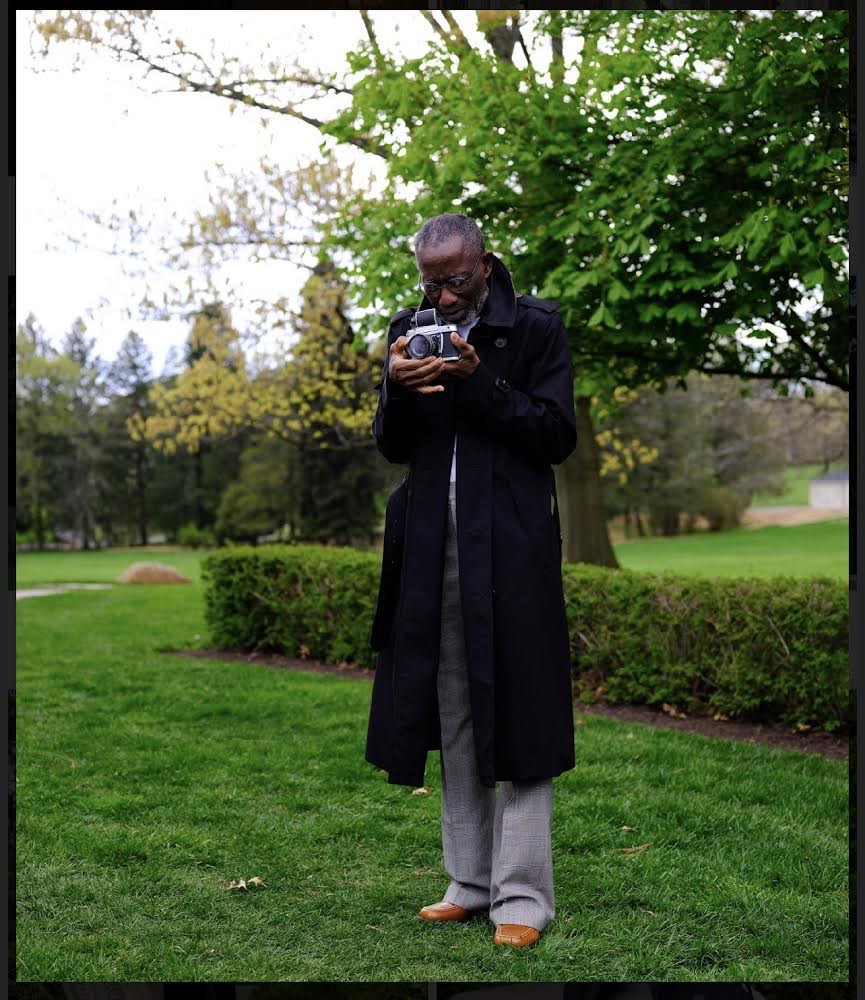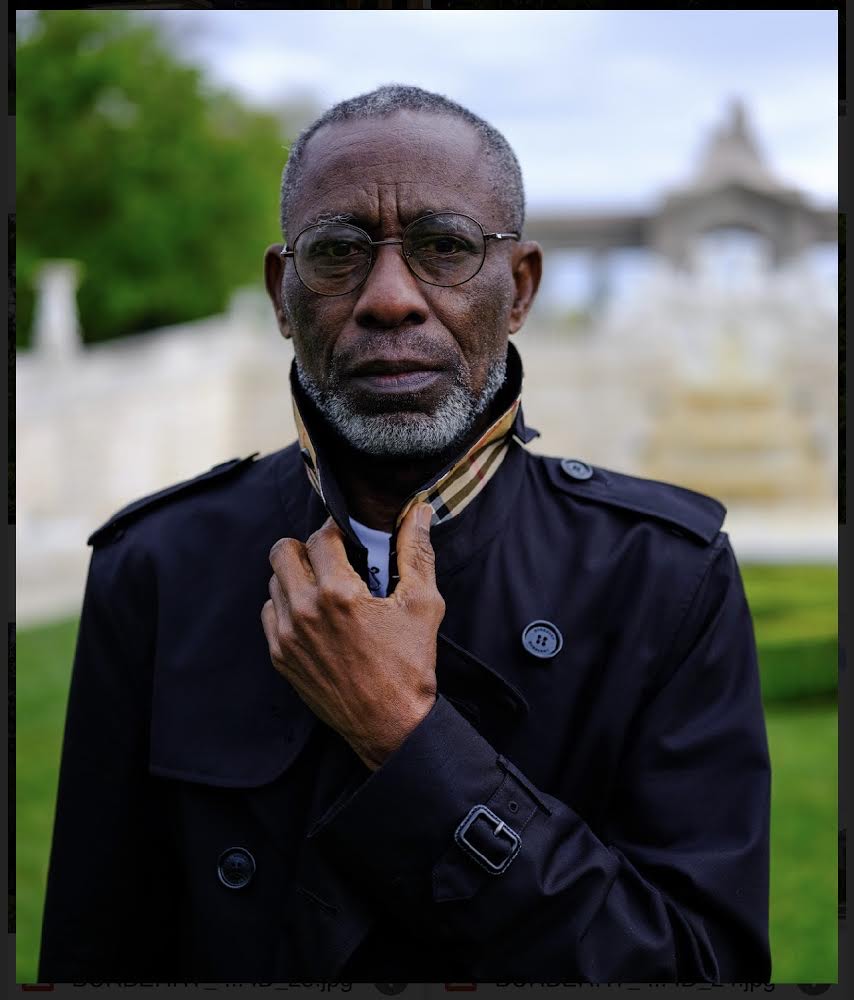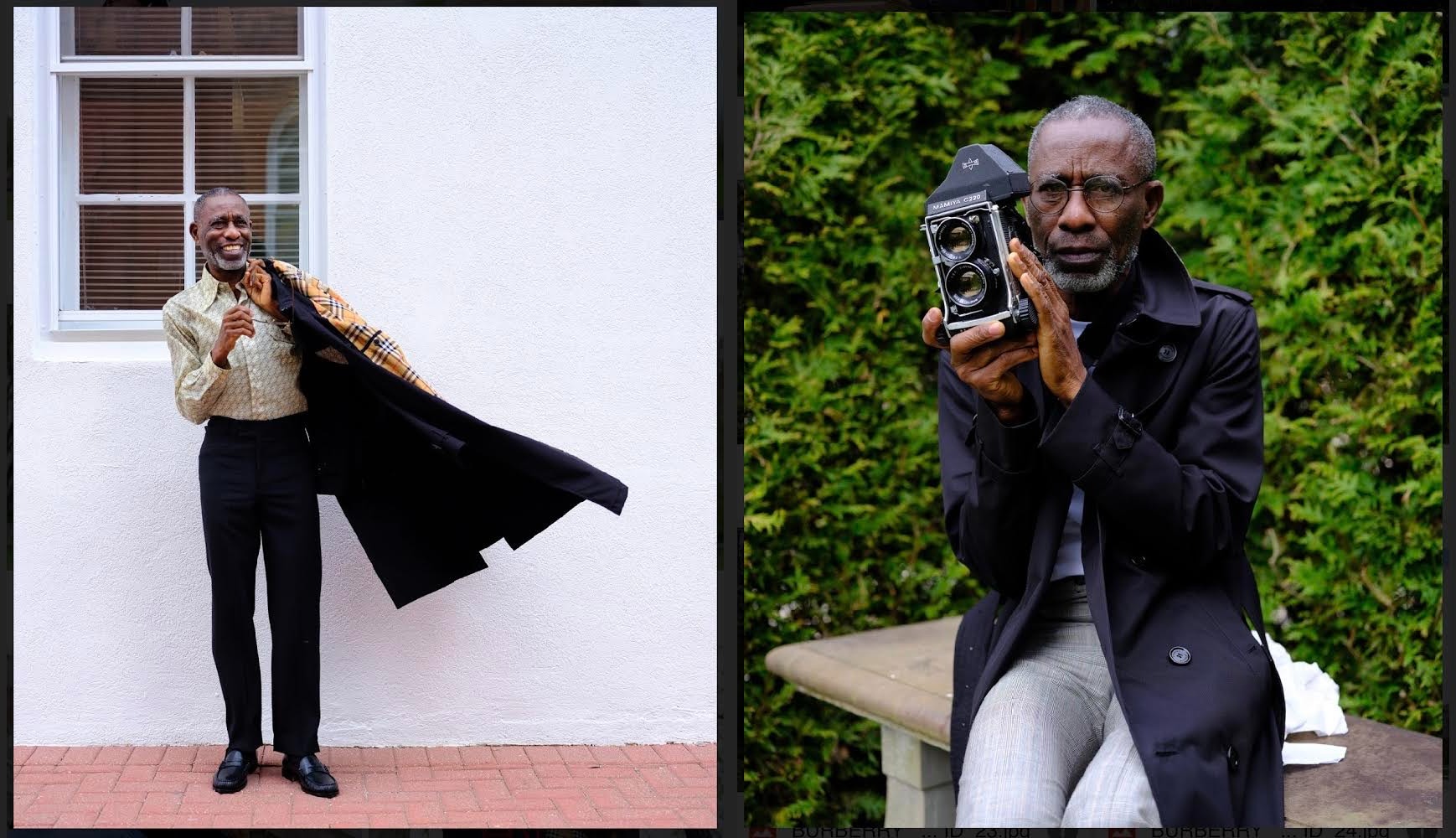Born in the Bronx and raised in Jersey City, Nuvany David is still in her first year of photography studies at Fashion Institute of Technology in New York. The 19-year-old rising talent started photographing her friends hanging out and at parties in her freshman year of high school. Her work, as she puts it, is about the “beauty of adolescence”. And yet, when tasked with capturing Burberry’s iconic trench coat for i-D, she decided to explore a much more seasoned figure in her life: her 72-year-old grandfather, Pastor Ralph Ugo.
Nuvany currently lives with her mom and two brothers in Jersey City (her photography class has shifted to online schooling). In March last year, just as the world was overtaken by a pandemic, her maternal grandparents moved in with them after years of living abroad, most recently in Kenya. Pastor Ugo, or grandpa to Nuvany, has lived an illustrious life travelling the world as an educator, photographer, athlete and army veteran. During the last year, Nuvany got to know him much better — and so when it came to this project, she riffed on the idea of framing a timeless wardrobe staple with the time-spanning story of her grandfather’s life.
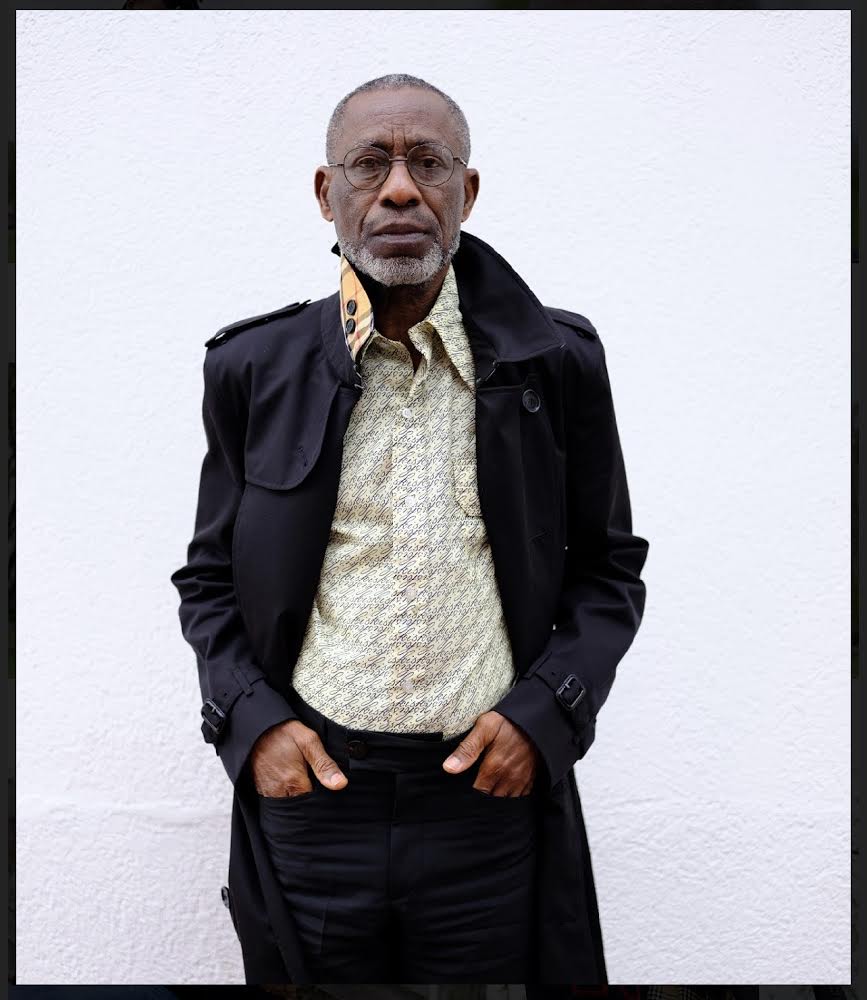
“He is the epitome of a timeless man,” she says. “Even though he’s 72 years old, he’s like the most youthful person.” Shifting her lens from the young people she grew up with to someone she had only recently become much closer to, resulted in an interesting exploration of dreaming big — of seeing just how much is possible for the future, simply by examining the past. “I feel like capturing younger people is kind of like photographing the present, whereas this has been going back in time in someone’s life, trying to bring it up to the present.”
Here, we caught up with Nuvany to discover how she’s bringing her unique perspective to image-making.
Hi Nuvany! You’ve described your work as documenting the beauty of adolescence. What do you think is beautiful about adolescence?
I feel like younger people are more unapologetic. I feel like it’s rawer and more interesting for me to photograph people who’re fully themselves and free. I guess because I like how unapologetic young people are, especially the young people that I surround myself with. It’s been really interesting photographing people that I’ve known for so long, at that time of our lives where we are all coming into our own art, who we want to be and the paths that we want to take.
Your project was all about your grandfather and he’s the opposite of an adolescent! Can you tell us a bit about the idea behind it?
I was writing down a bunch of different ideas and trying to think of what is important to me right now, and the people who have been helping me through this time in my life. And I’ve grown really, really close to my grandfather since the pandemic. He actually moved back to the US after living in Kenya for the past four years. He’s always been someone that I really look up to, but also someone who I didn’t have the time to get to know. So, it was like catching up on 10 years and we grew really close. I’ve been very inspired by his story and I thought it would be really important to tell it.
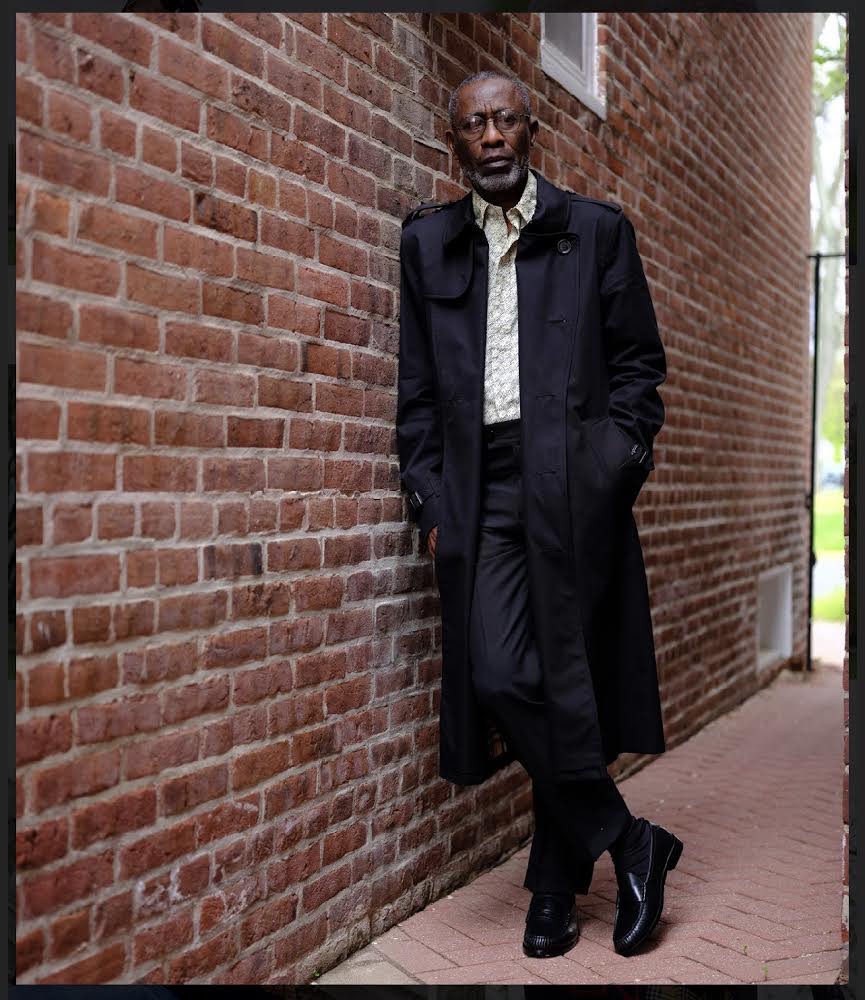
Your grandfather has lived a really fascinating life. He was in the military and then went into sports, right? Can you tell us a bit about some of these chapters that you’re focusing on?
My grandfather is a pastor. He has been in the ministry for almost 40 years now and has been in the mission field almost half of his career. My grandfather was in the US Army for 20 years; he retired in 2000 and moved to Dallas, Georgia. The military was a huge part of his life, bouncing around different bases- the places they lived in included South Korea, Germany, Spain, and Maryland. And then, while he was in the military, he was a member of the US Army All Army Soccer Squad for three consecutive years.
Growing up in Nigeria, my grandfather played soccer all his life. He played semi-professional in Nigeria before he left for Europe. While in Spain and Germany respectively, my grandfather played with some lower division clubs, but could not play professional. He said Africans who played professionally in Europe in the 70s, required their countries’ Football Associations’ approval before they were signed with European Clubs. He said when he requested for permission from the Nigerian Football Association he never heard back from them. While stationed in Stuttgart Vaihingen, Germany in 1987, my grandfather said he received the B Soccer Trainer License. He coached Middle and Higher-schoolers everywhere he was stationed; including my uncle Ralph Jr. and my mom. And now, he coaches both my younger brothers who have dreams of being soccer players, too. I wanted to explore all of these different chapters of his life.
Was there anything that surprised you about him when you started working on this project?
I actually didn’t know that he had given up his soccer dream when he met my grandmother. I didn’t know that it was something that he had kind of sacrificed, to pursue being a pastor and studying more about his religion. That was really interesting. Oh, yeah, and he was also doing a lot of photography, too!
I think when he was 18, he moved from Nigeria, where he lived all his life up till then, to Spain. My grandfather had a degree in English when he was in the Army. When he retired, he worked with Paulding County, School System, Dallas, Georgia as Spanish/English teacher at the Middle and High Schools. My grandfather stopped teaching when their Non-Profit Benevolence/Outreach Ministry and the Foreign Missions Ministry got very demanding. I am very thankful to God that my grandfather is alive today, giving me this opportunity to enjoy such a beautiful relationship we have; and to be able to photograph and write about him.
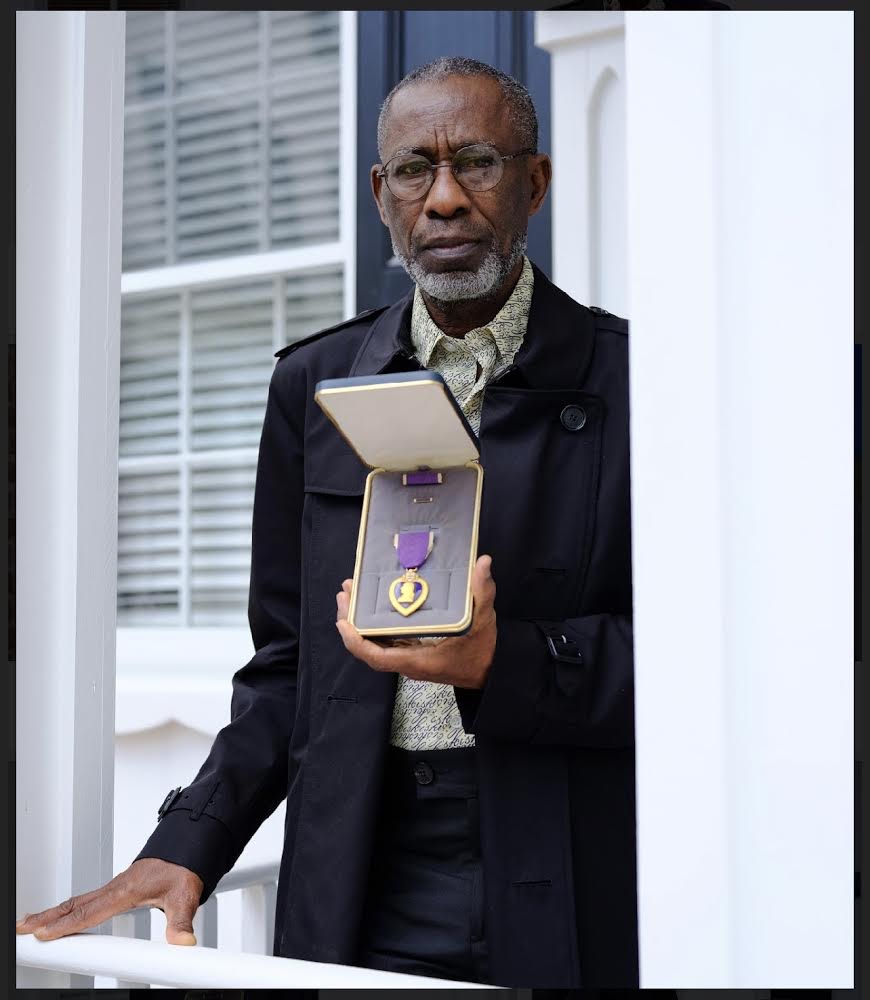
It must also be really interesting to be working on a project with someone who’s a lot older. Have you found it at all challenging, or different to how you usually work?
With photographing younger people, it’s interesting seeing how our lives are just beginning. I feel like it’s been really different working with someone who already has lived so much life and having so many different memories to work with. It’s been nice trying to almost recreate the most important moments.
For your generation of photographers, you’re beginning your careers at a time when the world has never been more saturated with images. What do you think the role of the photographer is today?
I feel like my generation has been really surprised by how strongly our voices are being heard — in terms of all of the racial injustices that have been going on, and even the pandemic. I feel like we have been so present. And I feel like, as a photographer, you can use that same platform to use your voice and express all of these different things that are going on.

